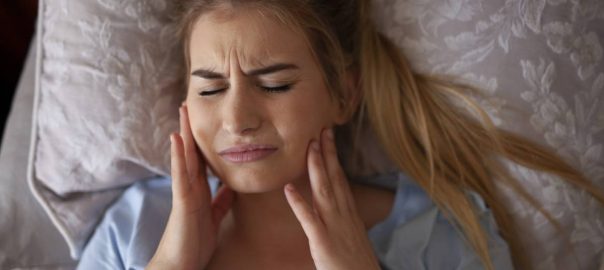Your teeth consist of many layers that keep them strong and healthy. Enamel is the outermost layer of your teeth, and it is responsible for protecting your teeth against the outside world. Without enamel, your teeth would wear and tear much too easily. Excessive pressure can wear down your enamel and put you in danger of dental damage. This is but one way teeth grinding can ruin your teeth.
There are several risks of teeth grinding that your local DTLA dentist wants to warn you about. It’s important to know how teeth grinding can ruin your teeth so you can get the help you need to stop your bad grinding habits right away.
Causes of Tooth Grinding
Tooth grinding, also known as bruxism, is a common condition that often turns into a bad habit. When you constantly push or gnash your teeth together, you are causing potential harm to your mouth.
Common causes of tooth grinding include:
- Anxiety
- Stress
- Medication overreaction
- Pain
- Bad dreams
A lot of people find out that they are grinding teeth overnight, which is a common ailment. While it is frustrating to feel out of control of your tooth grinding habit, there are treatments available that can keep you from letting this habit happen while you sleep.
Ultimately, tooth grinding is dangerous for your teeth. There are many dangers posed by bruxism.
How Teeth Grinding Can Ruin Your Teeth
Excessively grinding your teeth can lead to some bad oral health habits. Let’s take a look at the worst risks you are facing when you grind your teeth:
Chips and Cracks
When you grind your teeth, you are greatly wearing down the enamel that protects your teeth from damage. This makes it easy for your teeth to chip and crack over time. Your teeth will become brittle and it will be more difficult to repair them if they sustain permanent damage.
Abfraction
Abfraction refers to the loss of tooth matter by the base of the tooth. Depending on your pattern of tooth grinding, you may find that you have significant tooth loss in areas that were once supporting healthy bone structure.
Gum Recession
An unfortunate result of excessive tooth grinding is gum recession, which occurs when your teeth damage your gums. The grinding action slowly pulls teeth out of their position in the gums, opening a gateway to infection and gum disease. Gum recession indicates many different oral health issues, and it is important to seek dental treatment right away.
TMJ
TMJ disorder describes the pain or stiffness in the joints that connect the upper and lower jaw. These joints are located just below your temples and can cause many uncomfortable symptoms, such as migraines, constant pain, and the inability to open your mouth all the way.
Attrition
Your teeth wear away at each other over time the more you grind them. You’ll eventually grind the top part of your teeth down, making it harder for you to bite or chew things. Damage done to the surface or the “biting” part of the teeth is known as attrition.
Best Tooth Grinding Treatments
It can be hard to break a bad habit, especially when you perpetuate that habit subconsciously. How do you stop grinding your teeth if you do it in your sleep?
While it takes time to get rid of the action, you can protect your teeth against further damage in the meantime. Mouthguards are specifically designed to shield your teeth against each other.
You can wear mouthguards at night while you sleep, so in the event your teeth want to grind, you are at least providing a rubber barrier so they do not cause harm to your dental structure. Further treatments can be discussed with your specialist after you have worn a mouthguard for a while.
Stop Grinding Your Teeth!
Get the best treatments and mouthguards Downtown Los Angeles has to offer. At Samaritan Dental Arts, we are passionate about restoring your mouth to good health. For inquiries about the dangers of tooth grinding, and to schedule a consultation with our specialist, get in touch with our staff right away.









 Yelp
Yelp I have never had a better dental experience prior to my visit with Dr. Zabolian. It was pain free for the first time ever, the staff was friendly, accommodating to my schedule, there were no problems with my insurance claims... I am so happy I have found a dentist (after all these years) I feel so comfortable going to and also taking my family.
I have never had a better dental experience prior to my visit with Dr. Zabolian. It was pain free for the first time ever, the staff was friendly, accommodating to my schedule, there were no problems with my insurance claims... I am so happy I have found a dentist (after all these years) I feel so comfortable going to and also taking my family. 






